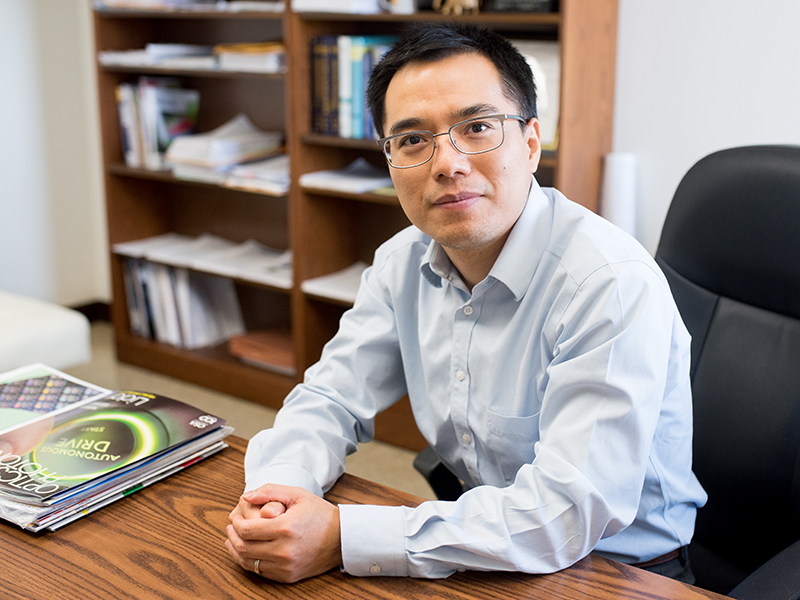Researchers Aim to Shed Light on Cellular Bonding, Including COVID Cells
The way cells interact with each other is among the most fundamental aspects of understanding the body and developing effective treatments for diseases. However, the tools for observing how cells behave in various circumstances remain flawed, despite intense focus from researchers around the globe.
An interdisciplinary team at The University of Texas at Austin was recently awarded a RO1 grant from the National Institutes of Health to create a new platform and devices for experimenting and analyzing cellular interaction, specifically what happens when they bond. This platform could improve creation of treatments for a variety of illnesses, and shed light on how diseases attack our immune systems.

Yuebing Zheng, associate professor in the Cockrell School of Engineering’s Walker Department of Mechanical Engineering
“Measuring these relationships is important, but the current technology is bulky with low throughput,” said Yuebing Zheng, an associate professor in the Walker Department of Mechanical Engineering and the leader of the project. “We want to make it compact and portable so everyone can have access and use it.”
Today’s technology uses small tubes to suck up cells, bring them together and pull them back apart. This mechanical push-pull technique measures how strong cell bonds are.
In addition to being big and bulky this platform can only analyze a single cell at a time. The platform Zheng and his team are developing can process many cells at a time and do so using light to manipulate them instead of mechanical force.
This project employs one of Zheng’s previous discoveries, using cool metals to move cells around. Mobile particles will commonly gravitate toward a cooler environment, and the researchers used that to entice cells to bond.
In addition to this alternative method, the team’s equipment will be smaller – the size of a laptop – and portable. It also enables an extra dimension of cell measurement, the ability to analyze how cells are rotating. This is important because in different parts of the body external forces could cause cells to move in different ways, and being able to measure their bonds in changing conditions is key to increasing understanding.
Zheng is working closely with Brian Hobbs, associate professor at Dell Medical School’s Department of Population Health, on biostatistics and analysis. Also part of the team are Jason McLellan and Blerta Xhemalce from the Department of Molecular Biosciences in the College of Natural Sciences.
McLellan is known for his work developing vaccines to protect against the novel coronavirus. As part of this project, the researchers will use their platform to look at how SARS-CoV-2 cells bond with host cells they are attacking. Current technology limits how deeply researchers can analyze bonding mechanics of these cells.
Zheng said improving cellular understanding is crucial to developing treatments to a variety of ailments.
“Patients have so many different immune cells. Better understanding of cell dynamics lets us select the best ones and amplify them to create drugs and other therapies,” Zheng said.
